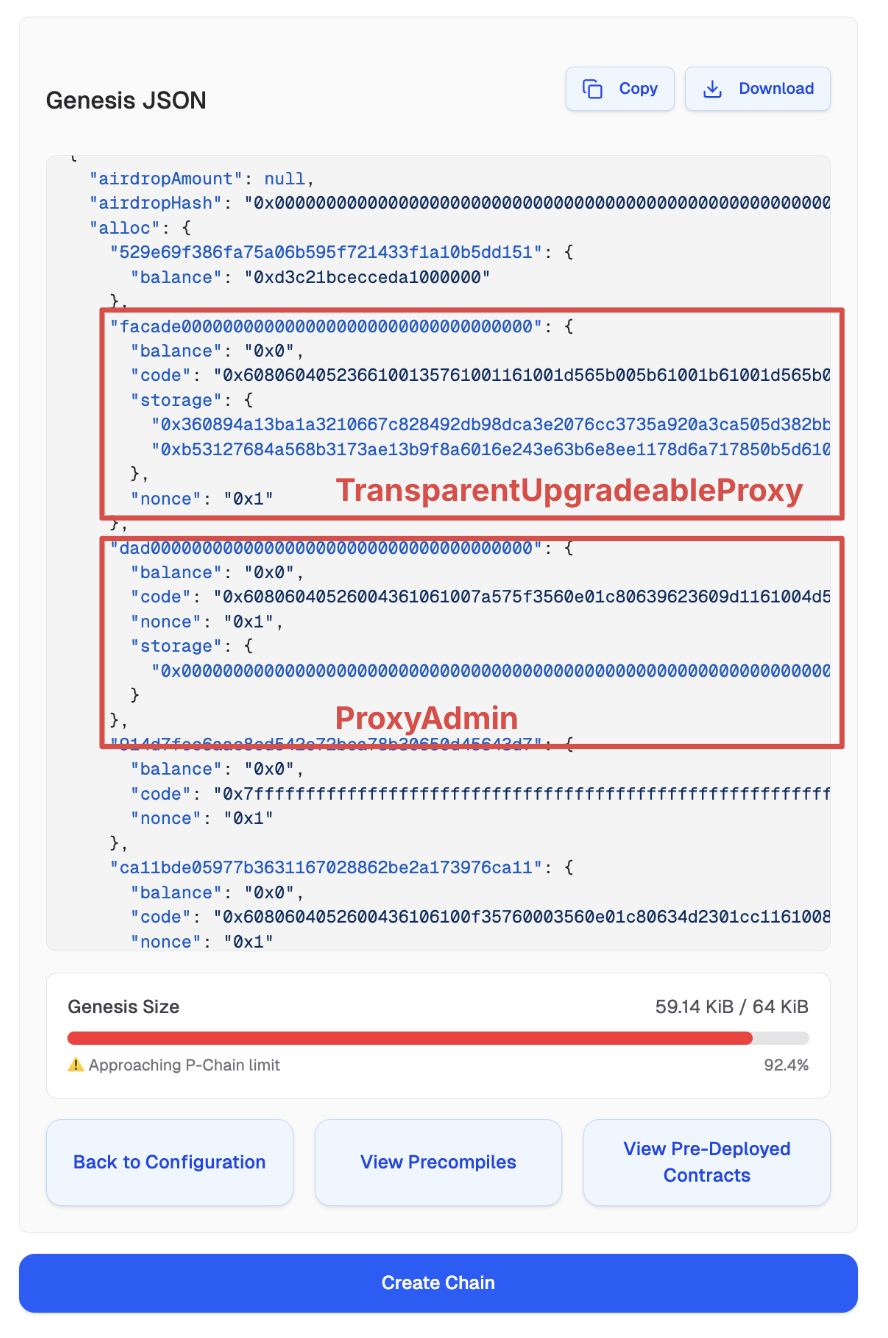Genesis Breakdown
Deep dive into the genesis file structure & why we need to initialize the chain with predeployed contracts
What is a genesis file?
The genesis file defines the very first block of your Subnet-EVM chain and its initial state. It enables EVM features, sets economic parameters (fees and gas), fixes the start time, etc...
Additionally, in the context of Avalanche, it is set by default to pre-deploy well-known contracts. Lets take a look at which ones:
Predeployed Contracts & Allocation
The alloc section seeds balances and deploys bytecode at fixed addresses before block 0, so they exist from the first block.
-
BLOCKCHAIN_DEPLOYER_ADDRESS - Subnet Owner Balance:
0xd3c21bcecceda1000000wei = 1,000,000 native tokens (1e6 × 1e18) useful for funded deployer/faucet account -
TransparentUpgradeableProxy (0xfacade00...00) — Proxy bytecode that delegates calls to an implementation and is controlled by an admin. Storage slots (EIP‑1967) predefined in the contract:
0x3608…bbc(implementation):0x1212121212121212121212121212121212121212(placeholder implementation address)0xb531…103(admin):0xdad0000000000000000000000000000000000000(the Proxy Admin address below).
-
Proxy Admin (0xdad00...00) — Owns and manages upgrades of the proxy at
0xfacade…

Additional contracts are also deployed by default (multicall3, create2, wrapped native tokens...), but we will not dive into them in this guide as they are not essential for understanding permissioned L1s.
Why Pre-Deploy Proxy Contracts
Deploying the proxy contract in genesis provides three critical benefits:
1. Known Address Requirement
By deploying in genesis, we can set an arbitrary contract address (0xfacade…). This is essential because the convertSubnetToL1 transaction requires the Validator Manager address as a parameter:
type ConvertSubnetToL1Tx struct {
// ...other fields...
// Address of the Subnet manager (the proxy at 0xfacade...)
Address types.JSONByteSlice `serialize:"true" json:"address"`
}2. P-Chain Transaction Size Limits
Contracts are pre-deployed by including their bytecode in the genesis file, which is recorded as part of the CreateChainTx on the P-Chain. All P-Chain transactions have a size limit (to prevent DoS attacks) making space precious.
While we could deploy the full Validator Manager directly in genesis, it would consume significant space. The proxy contract is much smaller, leaving room for other essential contracts.
3. Upgradability
The proxy pattern enables updating the Validator Manager implementation if bugs are discovered. Since the subnet owner address on the P-Chain cannot be changed after conversion, using a proxy is the only way to update the implementation without requiring a full network upgrade.
The proxy will later be upgraded to point to the actual VMC implementation after conversion—more on this in the Validator Manager Deployment section.
Appendix: Predeployed Contracts Structure
Here you can see the contracts we just mentioned and how they relate:
Is this guide helpful?


